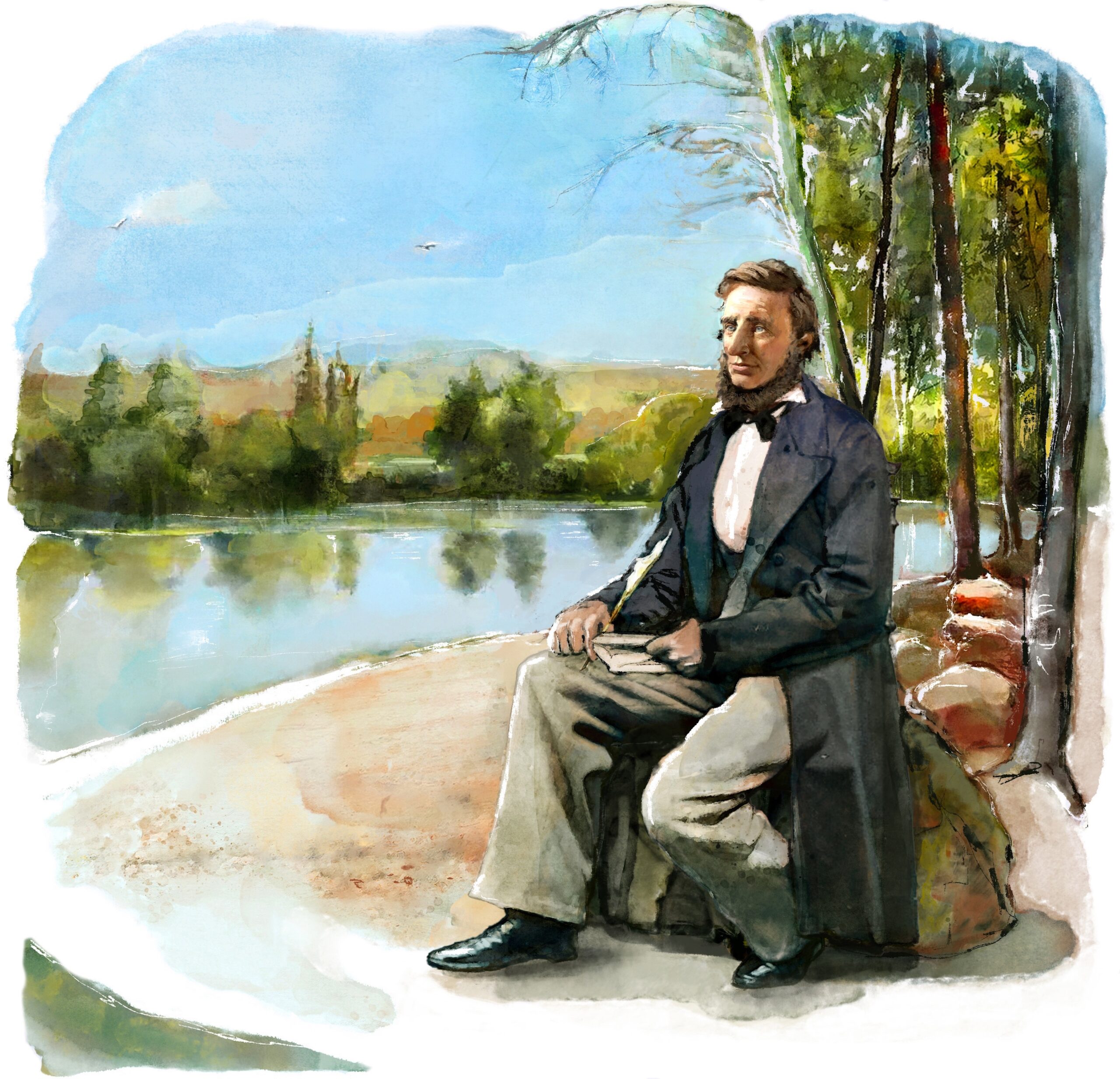Transcendentalist and environmentalist American philosopher: Who is Henry David Thoreau?
We can say that his thoughts on the environment are the most important lines of modern environmentalism and environmental protection. His article, Civil Disobedience, is as important as the traces he left in the history of American thought, Transcendentalism, and naturalism. Gandhi's inspiration.

Henry David Thoreau (July 12, 1817, to May 6, 1862) was an American writer, philosopher, and environmentalist. Born in Concord, Massachusetts in 1817, Thoreau died in the same place in 1862.
He graduated from Harvard University in 1837. Never a traditional student, his interest in transcendentalism and Ralph Waldo Emerson began during his school years. After graduating from Harvard, he worked in his father's shop for a while, then taught at a school.
Emerson, who was greatly influenced by him intellectually and who would become his lifelong friend, invited him to his home in 1841, and Thoreau stayed at Emerson frequently until 1843. He was kind of an assistant to Emerson. He contributed his poetry and prose to the transcendentalist journal The Dial. In 1845, he built a cottage on top of Emerson's land on the shores of Walden Lake, outside the city of Concord.
Henry David Thoreau (July 12, 1817 – May 6, 1862) was an American naturalist, essayist, poet, and philosopher. A leading transcendentalist, he is best known for his book Walden, a reflection upon simple living in natural surroundings, and his essay "Civil Disobedience" (originally published as "Resistance to Civil Government"), an argument for disobedience to an unjust state.
He wrote the book “Walden” as the fruit of the two years he spent here. Another fruit of two years spent in harmony with nature but alone on the shores of Walden Lake was “A Week on the Concord and the Merrimack Rivers”, published in 1849. Thoreau had only these two books published in his lifetime. Other works and diaries were published posthumously.
His masterpiece "Walden", published in 1854, is an exemplary work for New England Transcendentalism, one of the most important intellectual movements in America. We can say that the thoughts on the environment in the work are the most important lines of modern environmentalism and environmental protection. His article Civil Disobedience (1849) is as important in political history as his traces in the history of American thought, Transcendentalism, and naturalism are.
Because of the Mexican war, which according to him was only to promote slavery, a night in prison as a result of the tax he refused to pay led him to write the article "Civil Disobedience." This article, which would later become Gandhi's greatest inspiration, is perhaps Thoreau's most famous work. Apart from Gandhi, important names such as Tolstoy and Martin Luther King were also inspired by Thoreau's thoughts and works.
Thoreau died of tuberculosis in 1862, in the city of Concord, where he never left, except for a few minor trips and as a student at Harvard. All his works were published in 1906 in 20 volumes.
THOREAU'S UNDERSTANDING OF PHILOSOPHY
Thoreau thought that philosophy is an art of living rather than a discipline of knowledge, a body of knowledge. According to him, if philosophy was a set of theories or the discussion of controversial theses, doing philosophy would essentially consist of just reading, commenting, criticizing, and writing books. According to him, the real sage is the one who makes his philosophy present in his life and actions and makes it a part of the moment. Philosophy is not conclusive arguments, but a call to live life differently, an enthusiasm.
